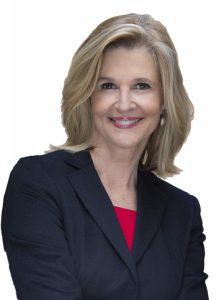Whither the philosopher-president?
April 7, 2019By Kathleen Parker
In his most famous dialogue, “The Republic,” Plato, via Socrates, explored the idea that a just state would best function under the leadership of a perfectly just philosopher-king.
That is, an intellectually curious person who pursues knowledge, is intelligent, reliable and wise, and embraces the simple life. To test the hypothesis, Socrates is asked by an interlocutor to imagine a competition between a perfectly just man — who would be perceived by an ignorant public as unjust — and a perfectly unjust man, who is ruthless, immoral, gets away with murder, figuratively, but appears to be just.
Though this is more complicated than described here, one unavoidably thinks of Donald Trump, who, apparently seems “just” to — or at least is approved by — 39 percent of the electorate, yet meets the very definition of “unjust.” Ruthless and immoral, he somehow always escapes accountability.
As we know, Trump doesn’t like to read, seems to abhor knowledge, is unreliable from moment to moment and embraces a gaudevillian, as well as vaudevillian, life. He’s the opposite of the philosopher-king and, given the pendulum theory of presidential succession, we’re now primed and ready for one. But, who?
Does such a person even exist in the land of Twitter and Snapchat? Does our narcissistic culture engender the sort of person we last saw strolling along a wooded path lost in thought? If such a person were to exist, would he or she stand a chance of attracting voters with the kind of message that urges people to think rather than cajoles them with sophistry?
The Greek sophists were learned men who made clever arguments that were, in fact, false. This also nearly defines our president, who has manipulated people by invoking emotion rather than reason. It must be sublime to be unencumbered by conscience, weightlessly bloviating to the cheers of admirers without the burden of truth.
Then again, maybe not. My guess is that a majority of voters know that they deserve better. And the ambient unease people feel is the very real sense that the ship of state is listing and a lunatic mans the helm.
So, let’s say we’re in the market for a philosopher-king — or queen — who understands the extraordinary challenges ahead because he or she has studied them. Someone who is reliable and won’t say one thing today and its opposite the next. Given our dot on the timeline, perhaps he or she might also be a bit witty. We surely wouldn’t want to be bored.
The diverse roster of Democratic candidates is testament to how far we’ve come from the ridiculous era of playboys, fast cars and the bigger-better-richer-than-thou dogma to which Trump has entrusted his flexible faith. Is there a perfectly just philosopher-president among them? We’ll find out during the next 19 or so months, as stories are shared about humble origins who has suffered poverty, endured discrimination, or been sexually harassed — or hugged by Joe Biden.
But, which one of them is capable of elevating the dialogue, of inspiring citizens to look beyond their immediate needs to something that unites all? We’re not only physical beings with basic needs; we’re also soul-filled and spiritually yearning for something greater than ourselves. It is to the latter that our next president should focus some of his or her attention, because we are entering a new age without much guidance.
At this particular time in history, we have to answer an exceedingly tough question: What does it mean to be human?
Technological advances have so overwhelmed us that we may be unable to process their ethical ramifications, which have an increasing impact on our daily lives — from robots and artificial intelligence to synthetic biology. With advances in gene manipulation, we’ll soon be creating improved humans, most likely without the bother of mating and pregnancy. Enough of: Who am I? The question now is: Who are we as a species?
Many of these developments are already upon us. And though academics and scientists may be well-versed in various consequential scenarios, no one in the public sphere has yet approached the deep philosophical/psychological implications that could lead to circumstances most unpleasant. If you think income inequality is challenging, wait for gene inequality and its companion privileges.
I don’t know who our philosopher-president could be, but I feel safe in saying that the country is ready for her — or him.
(c) 2019, Washington Post Writers Group














